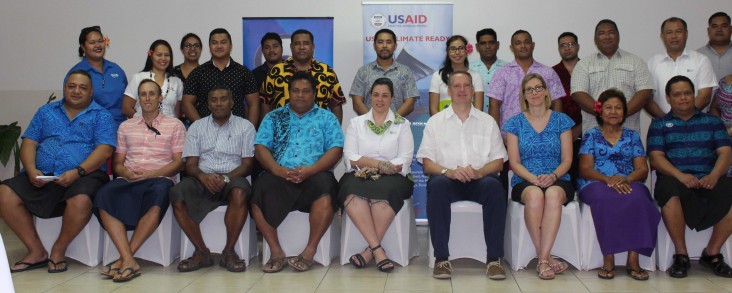Speeches Shim

[As Prepared]
[Greetings]
Talofa and welcome!
I am very pleased to join all of you today to launch the Business Continuity Planning training for small and medium enterprises in Samoa. This training is organized by the U.S. Agency for International Development, commonly known as USAID, in partnership with the Samoa Chamber of Commerce and Industry. USAID is the lead U.S. government agency for international development and disaster assistance.
The Pacific Island countries are at the forefront of advocating for sustainable development that addresses the increasing climate variabilities and disaster risks that we all face. At the regional, national, and local levels, you have all identified clear priorities to strengthen the resilience of your communities. I would like to start by commending you all for your leadership.
Resilient development requires that all sectors of the economy work together to prepare for the challenges ahead, including by strengthening infrastructure and social systems. We need an engaged, vibrant private sector to help promote sound development policies and practices that can reduce the impact of disasters and protect development gains. The U.S. government is pleased to work with you —our partners in Pacific governments, the private sector, and civil society — on this endeavor.
One key component of USAID’s Ready project is increasing the capacity of Pacific Island countries to better prepare and respond to future climate-related disasters. Your experience with disasters, such as cyclones and flooding in Samoa, is well documented.
When Cyclone Evan hit Samoa in December 2012, it caused immense damage and significant losses. The Government of Samoa and the World Bank estimated that the storm caused around 235.7 million Samoa tala in losses, with forty-five percent of damages sustained by private enterprises and individual ownership.
While we can never prevent these events from happening, we can better prepare for them. For small and medium enterprises, this means having a business continuity plan in place so that businesses are able to stay open after a disaster.
The participants for this training include private sector representatives from small and medium enterprises in Apia and its surroundings. Subsequent training events will be held in Aleipata and Savaii. USAID promotes equal access to training opportunities for women and people with disabilities in each of these locations.
The skills covered in this training will give small and medium enterprises the knowledge and skills to prepare their businesses against future disasters. Evidence worldwide suggests that by having a business continuity plan, businesses are more likely to adapt, survive, and thrive when disaster strikes.
This training activity represents continued partnership between USAID and Samoa. We thank the Government of Samoa for its collaboration with USAID and the Samoa Chamber of Commerce and Industry for their partnership on this activity and for hosting the event. We look forward to continued partnership as we build a more resilient and sustainable Pacific Region.
Fa’afetai lava and thank you.

Comment
Make a general inquiry or suggest an improvement.